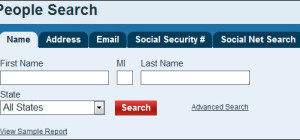When managing a website, partnering with the right hosting provider is essential to ensure the successful operation and security of your website. With a range of hosting options readily available, localised hosting is growing in importance with web hosts and partnering websites. Web hosting in Australia has been evolving since the commercialisation of the World Wide Web to accommodate the ever-growing changes and adaptations web businesses need to the growing localisation demands. We take a look at the growing importance of localised hosting and what impact it can have over the long term.
The types of localised hosting to consider
When webmasters are deciding which hosting solutions to go with, they will need to consider the hosting options around the domain and the hosted website space. The domain will provide the strongest indication of the websites location as an internationalised domain, through the sites hosting provider and domain name extensions. Website owners can also go a step further with the use of international domain names that are displayed in local language scripts (non-Roman characters), however these aren't completely compatible in the wider market. Apart from the domain hosting, the actual local hosting locations and geographical setup can have an impact on a website's performance in relation to web users experience and search engine optimisation. Potential impacts may occur from IP address settings, downtime, page loading speed and data exchange that could negatively impact the performance and credibility of the website.
The impact of localised hosting on SEO
 Localised hosting is considered highly in SEO strategies. As Google seeks to deliver more relevant content to the right audiences based on geographical, regional and language areas, web hosting can aid Google with determining the content relevancy for the end users that they will serve the results too. Some of the areas SEOs have been considering for years in web hosting solutions include the following.
Localised hosting is considered highly in SEO strategies. As Google seeks to deliver more relevant content to the right audiences based on geographical, regional and language areas, web hosting can aid Google with determining the content relevancy for the end users that they will serve the results too. Some of the areas SEOs have been considering for years in web hosting solutions include the following.
The web host's infrastructure
Like with any hardware that hosts your website, the reliability and speed of the network it is connected to is important. The location of the web hosting provider is important, as they are reliant on the communications infrastructure that the region offers. This infrastructure is outside of their direct control, so should you experience downtime or a slow connectivity, it is likely to be an ongoing issue with your provider.
Additionally, the energy costs in the country or region will also impact the amount that you are billed. Additionally, the web hosts that have lower electricity costs are able to reinvest more money into their infrastructure and may also pass on costing savings to their customers.
Exchange rate risks
If you are with a local web hosting provider, it is expected that any commerce will be done in your local currency, meaning that there shouldn't be any changes in the price that you pay. Should you go with an overseas provider, then your outgoing payments in the foreign currency will be open to currency exchange rate fluctuations, which could vary greatly depending on the volatility of the market.
Environmental risks
While this is generally a lower risk, it is still a consideration that you need to have. The web hosting providers store their data in physical machines. So should there be any environmental hazards such as fire, earthquakes or flooding that could cause damage to the servers, then you will be at risk of losing your website data. Be cautious and aware of the location of your web hosting provider.
Geo-location and the proximity to the market
The geographical location of websites is growing in importance. Russian search engine Yandex factored this prominently into their search algorithm to provide relevant Russian searches. Google continues to move with this trend as well.
Link building
Localised link building efforts continue to grow in importance as Google improves its algorithm. Search engines spiders can take into account the local specific data provided from the web hosting data from the site.
From the examples provided above, localised hosting will only continue to grow in importance. As a result, businesses must ensure that they consider localisation as a factor in their web development strategy to avoid any potential pitfalls and to leverage the benefits available from localisation.








